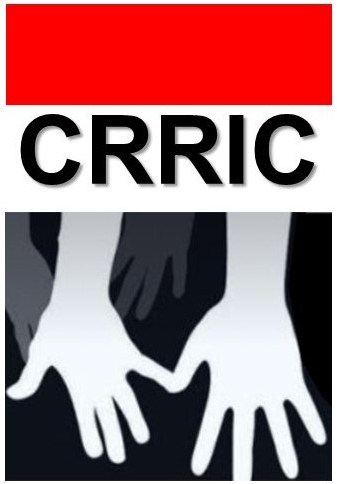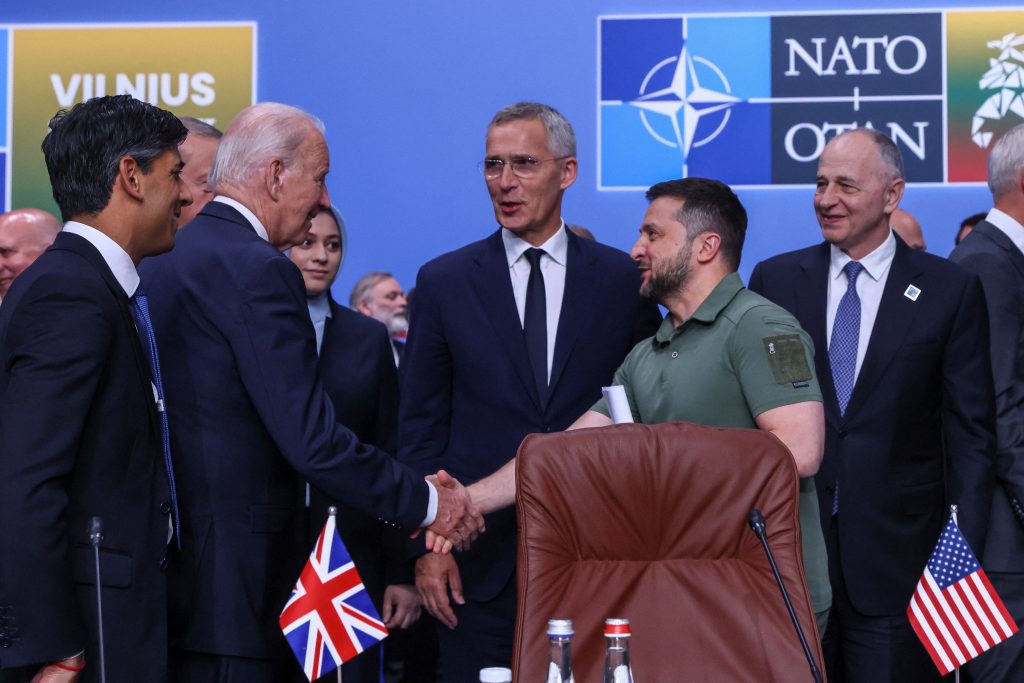NATO summit in the eyes of media: updates on critical aspects and propagandist materials
On 11-12 July the attention of the world was drawn to one of the biggest events of the year in the political field – NATO summit 2023, which took place in Lithuania. The 2023 Vilnius summit was believed to pave the way to a new page in Ukrainian history and open the door to new safety guarantees for a country in the war against Russia. Statements of Ukrainian representatives and the Western side foretold that the summit would step forward to the joint future of the country and the alliance. Especially crucial was the hospitality that Ukraine received in Vilnius, where all streets were decorated in blue-yellow colors, hinting that Ukraine should become the 33rd member of The North Atlantic Treaty Organization.
Understanding the unprecedented significance of the event, numerous world media were involved in coverage of the slightest updates of the summit. With great attention journalists were communicating with world leaders, joining press conferences, and creating up-to-date content from the press rooms.
At the same time, the NATO summit has become a subject of many debates and arguments. A certain subjectivity and differences in contexts might also be observed for instance in the same Ukrainian and Russian media outlets. That has made the NATO summit not only a subject of discussion in terms of politics but also of defining peculiarities in the media sphere nowadays.
Without exaggeration the 2023 Vilnius summit was a salient case for Ukrainian media. Constant updates, explanations, interviews, live broadcasts – it seems every news outlet published at least one article about the gathering. The national Ukrainian broadcaster Suspilne had been updating information about the summit weeks before its beginning. For example, there were many articles explaining what the Ukrainian delegation had expected to achieve, which guarantees would satisfy Ukrainians, and how authorities were trying to influence the decisions of the Western alliance. “Several important decisions for Ukraine and NATO have already been agreed, according to the results of the summit, Ukraine’s path to the Alliance will definitely become shorter”, – the publication quoted the Minister of Foreign Affairs of Ukraine Dmytro Kuleba. Desirable effects were also mentioned in another article, which clearly described what Ukraine was waiting for from the NATO summit. Among the main outcomes were a joint declaration on security guarantees for Ukraine, the decision to cancel the Membership Action Plan, and new military aid from international partners.
Many Ukrainian media: Radio Svoboda, Hromadske, BBC News Ukraine, and others, were publishing explanations of the reached outcomes. So did The Kyiv Independent, Ukraine’s English-language media outlet. They also shed light on the topic of the summit for their foreign readers from the Ukrainian point of view. In the article, they explained which conclusions were made after the meetings and which impact they could have on the Russian-Ukrainian war and Ukraine itself.
Opposite narratives were spread in Russian journalism. Unsurprisingly, the summit in Vilnius caused a furor in Russian society so state media were covering its results in their way. Thus, one of the biggest media outlets RIA Novosti was publishing many biased articles about the conclusions of the affair.
For instance, the article “Everything else is verbiage and dirt” shares the opinion of Russian lawyer and TV presenter Pavel Astakhov regarding summit outcomes. As he said, “NATO summit in Vilnius once again showed the unviability of the alliance. The conflict in Ukraine, which today involves the entire collective West and the main vanguard of NATO … is about the survival of Western civilization and the development of Russian civilization”. Other articles claim that “The European Union becomes a hostage of Kyiv” and “The West controls Zelensky because the independence of Ukraine is limited”.
Also, a separate conclusion of the summit was commented by the Ministry of Foreign Affairs of the Russian Federation. It was said that “the authorities of the Russian Federation will carefully analyze the results of the event taking into account threats to the Russian side”. The statement also indicated that “the alliance assigned Ukraine the role of “expendable material” in its “hybrid war” with Russia”.
More objective coverage of the Vilnius summit could be found in the world media such as The New York Times, CNN, The Guardian, Euronews, Deutsche Welle, and others. To illustrate, it is worth having a look at CNN articles, which underline both tangible gains of the summit such as strengthening the defense component of the alliance; and less satisfied needs of the Ukrainian delegation such as the still noncommittal timeline on when Ukraine could join the group.
Many analytical articles could also be found in the biggest media outlets. For example, BBC News published a candid summary of the conference where the author somehow criticizes President Zelensky and his attitude toward the alliance’s military aid and Ukraine’s uncertain position on the world stage. According to James Landale, diplomatic correspondent, “Ukraine’s president came to Vilnius, Lithuania, with high expectations”. Thus, “Ben Wallace gave a briefing to reporters warning Ukraine it should show more gratitude for the support it has already given”. In the conclusion the author summarizes: “Yet in Vilnius, no meant no. … A lesson that you can’t always get what you want”.
The NATO summit has only confirmed that the more important an event is, the more different its coverage is in the world media. From high expectations and the slightest updates to critical articles or even propagandist materials – journalism can take on different meanings of the same affair. And even if the media can have an impact on society, only readers are responsible for which information they want to consume.
By Mariana Bahlai
CRRIC, MITAC 2023 Intern





